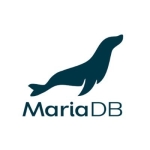What is our primary use case?
We use it internally for some small odds and ends. Two of our biggest clients use this solution. One client has more or less a data warehousing application. Another one has more of a transactional and pseudo accounting application.
I am currently using 12c, but I have also done some work with version 18. This July, we're going to upgrade most of our main databases from version 12 to version 18, which is fairly current. I believe they have version 20 available at this point.
What is most valuable?
The thing that probably stands out the most about Oracle Database is reliability. I have been working with Oracle Databases for over 25 years, and I have never lost any data due to a machine going down or any events that were not stupid human tricks. I've never lost anybody's data using Oracle. It gets the job done and doesn't fail.
It does what I want it to do. It has got a lot of features. Anytime I need a feature, I am able to find it in Oracle Database. It has never happened that I found a feature in any other database, but I was not able to find it in Oracle.
What needs improvement?
There is a lot of room for improvement. It is not meant for dilettantes. It is not meant for people who don't work on it day in and day out. Ease of use is probably the biggest complaint. They're getting somewhat better, but it is not as easy or intuitive as it could be in terms of maintaining and managing the database. The day-to-day maintenance and the ability to easily do things and keep things up to date can be painful.
Their support portal requires a person to become well-trained in how to use it. I'm sure it has lots of features and capabilities but to try and get support is somewhat painful. They are pretty good at handling absolute critical emergencies, but with the exception of absolute critical emergencies, getting problems solved from their support system is difficult and takes a long time. I had to do an update, and it was not straightforward to get the right patch kit. I'm getting to the point now where I somewhat understand how to use their support website, but it is not intuitive.
Probably about 80% of their online documentation is useless. When I have a question about what to do or how to do something, the things that come up on top when I do a search, of course, are Oracle websites. I always skip right past those and go to other websites. There's an old expression from my youth, "I want to know what time it is. I don't want to know how to build the clock." When you go to the Oracle documentation, you have to plow through page after page of stuff to get to anything that looks anything like an example of what it is that you might actually do. There are lots of other people who have filled that gap, and there are also websites where you can easily find the answers to most of your questions.
For how long have I used the solution?
I have been working with Oracle Databases for over 25 years. The first time I started using Oracle Database was around 1995. It was probably version 3 or 6.
What do I think about the stability of the solution?
It is one of the robust products from a stability point of view. I have not really found bugs or glitches. However, on a test database, I had an issue the other night where Oracle decided to behave badly when I was trying to do a query. The solution was to get the latest patches and install the latest patches. Everything worked fine after that. I did all of that without contacting Oracle support. I needed to get what I was working on done. So, I had to plow through to find the answers. I had found some people making some oblique references to what the problem might be. I then took a chance on doing the update. I found the patch kit, but it was not easy to find the right patch kit on their website.
What do I think about the scalability of the solution?
In the data warehousing database or application, we have tens of millions of rows in different tables, and we have no problems there. However, in that particular application, we're not dealing with transaction processing. So, I can't answer the scalability in terms of transaction processing. On the hardware platform that I've put together for the main database of this one customer, I am very pleased with the performance of the data warehousing aspects and being able to query data quickly and do bulk inserts and things of that nature. For data warehousing scalability, I can attest to the fact that it is great, but for transaction processing, I don't have the experience to be able to provide information.
Two of our biggest clients are quasi-governmental in the sense that their business is based on government funding. One has 60 users who use the application day in and day out, and their database is relatively small. The other application has about 20 dedicated internal users, and then there is a web interface. It has around 3,000 to 5,000 users, but typically, there are about 20 concurrent users.
How are customer service and technical support?
Their support portal requires a person to become well-trained in how to use it. Getting support is somewhat painful. They are pretty good at handling absolute critical emergencies, but getting other problems solved from their support system is difficult. It takes a long time. I had to do an update, and it was not straightforward to get the right patch kit.
I am the technical resource of last resort for our clients. I work with a number of technical people. When it gets to the point that it wasn't an easy problem to solve, they come to me, and I end up getting all of the tough problems to solve. I like that, and I would rather do that than just working on the same thing day in and day out. I am always trying to solve problems, and that's why I end up having to interface with Oracle support. The ability to solve problems better by using Oracle's support tools would be beneficial for me.
How was the initial setup?
Its initial installation and setup have become better. You can set up something fairly easily these days. If you need to do anything that is not straight out of the box, figuring out how to do it is not easy. If you want to just set up your average everyday database, you can get it up and running with a few mouse clicks.
What other advice do I have?
As a consultant for the last 40 years of my life, the conversation with anyone who wants to use a product would be a lot more in-depth and detailed where I'd be asking, "What is it you want to do? How do you want to do it? Where do you want to go?" It isn't the kind of thing for which I'd say, "Yeah, Oracle's a Swiss army knife, the best thing since sliced bread."
It is one of the more robust products from a stability point of view. There is a bit of a learning curve. From a transaction point of view, if you have the right hardware, Oracle is probably as or more scalable than anybody else. If your application is going to be massively scalable, Oracle is probably your best tool. If you're just going to put together a small application for occasional users, there are easier tools to learn and use. Some of them are even by Oracle.
I would rate Oracle Database an eight out of ten. It is a great product.
Which deployment model are you using for this solution?
On-premises
Disclosure: My company does not have a business relationship with this vendor other than being a customer.


















